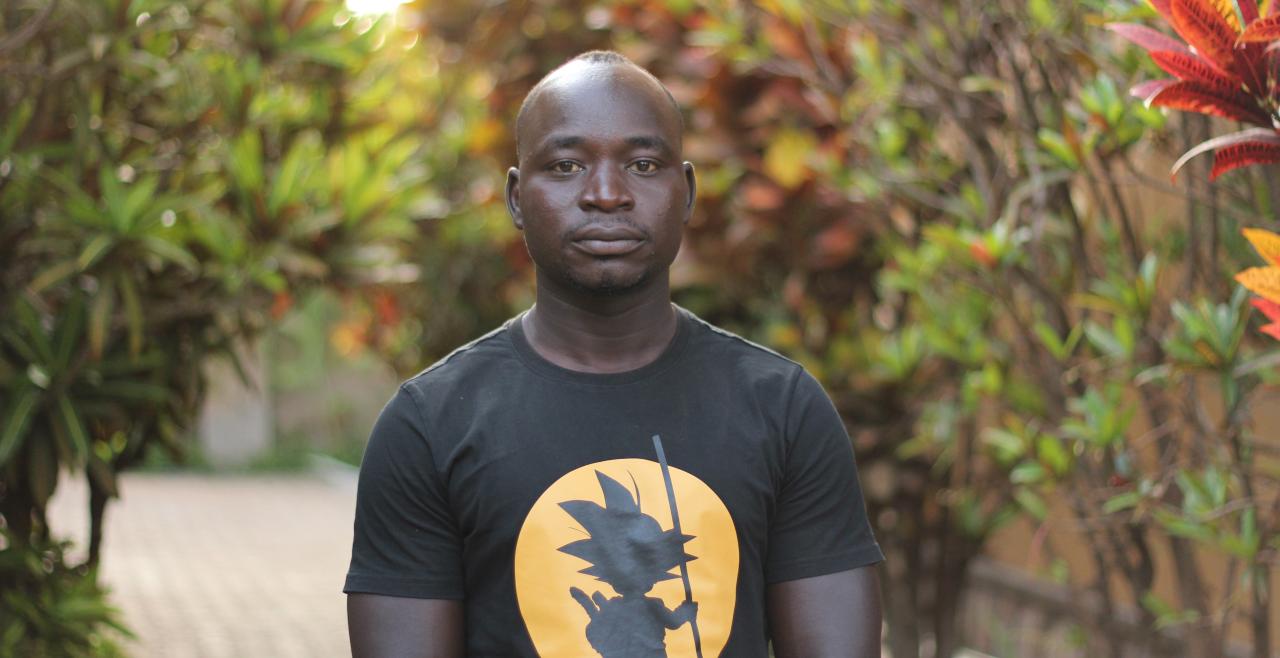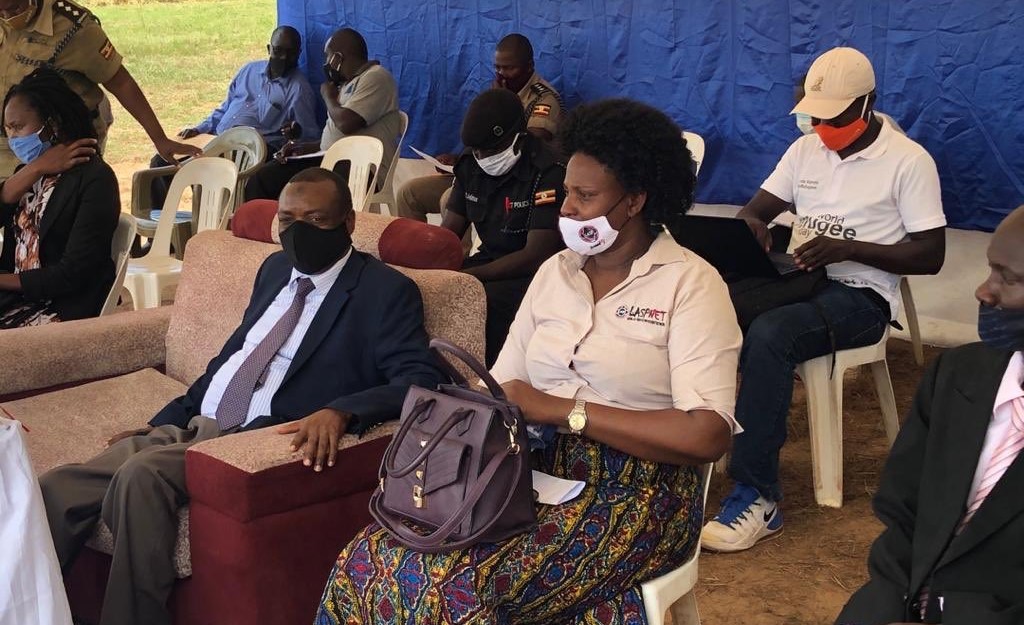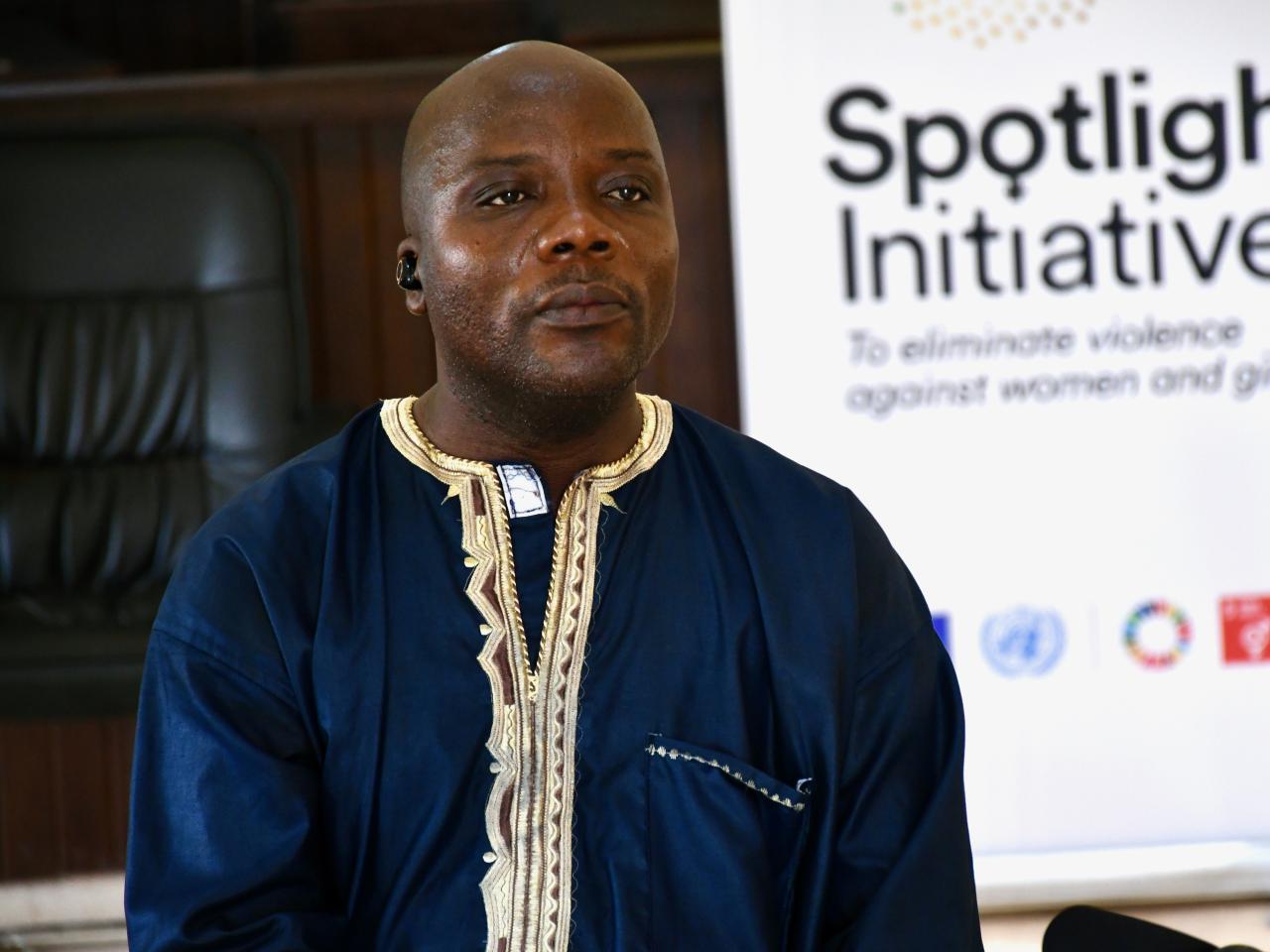Demystifying the judicial system in Uganda and supporting survivors to access justice

TEREGO DISTRICT, Uganda - For many years, perception surveys have ranked the judiciary as one of the most difficult institutions to navigate in Uganda; the general perception is that a poor person can never win a case. While this may not be true, the perception persists, especially among those who may not have the knowledge, finances or time to navigate the system themselves.
This is particularly the case in refugee hosting districts such as Terego District, where justice services are often located far from where people live and where communities may feel they do not have the resources needed to pursue a case. Among refugees and host community members living in Rhino Camp in Terego, the formal justice system is perceived as slow, geographically distant, ineffective and unfair.
As this attitude prevails, many legal cases are not formally prosecuted. Many cases of sexual and gender-based violence go unreported, and perpetrators of these crimes are not held accountable for their actions.
Spotlight Initiative, through UNDP, supported Legal Aid Service Providers Network (LASPNET) to host legal aid open days with the goal of ensuring that women, children and community members are equipped with the knowledge, confidence and resources to report these cases when they happen. At the open days, communities were able to access information about justice services as well as legal aid counselling.

Image: LASPNET CEO Ms. Sylvia Mubiru in attendance at the Legal Aid Open Day.
Emanuel Akullo was one of the 193 participants who attended the open day in Rhino Camp. As a youth representative for his sub-county, he helped ensure a good turnout from his community. Prior to the day, Mr. Akullo feared interactions with the courts, explaining that if he had been summoned as a witness to testify in court, he would not have done it as he had heard you would get in trouble yourself.
When he attended the event a few days later, he was surprised. A lot of people had showed up – not only people from his community but legal officers, lawyers, the Resident Judge of Arua, Hon. Justice Issa Sserunkuma and other stakeholders. For the first time in his life, Mr. Akullo could interact one on one with people working within the formal justice system. They talked about where and how to interact with the judiciary, legal aid service providers, and about how to report cases of sexual and gender-based violence.
Walking home from the open day, Mr. Akullo realized that many of his preconceptions about the formal justice system were untrue. He had always thought that justice services were costly – now he knew that many services are free of charge and that most processes are open to the public. Hearing other community members testifying that rape and sexual assault cases are high, and that survivors often are denied equitable justice, he also felt compelled to become a community advocate to help bring an end to gender-based violence.
Six months after the Legal Aid Open Day, Mr. Akullo began raising awareness about issues of violence against women and children. As he knows about how and where to report, he can help people who are not familiar with the justice system.
“I feel confident about processes and how to register a case now. I want to become a community advocate to help transform my community for the better, so that we can end gender-based violence,” says Mr. Akullo. “The legal aid open day was truly an eyeopener for me.”
Originally published by UNDP Uganda.


